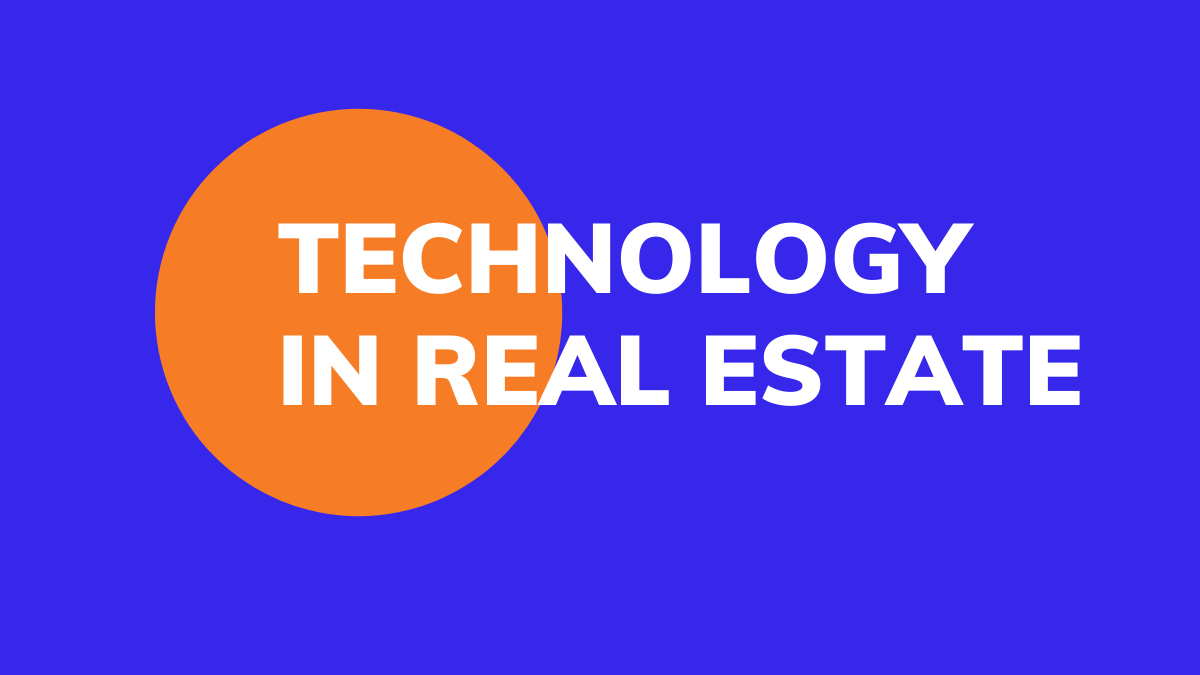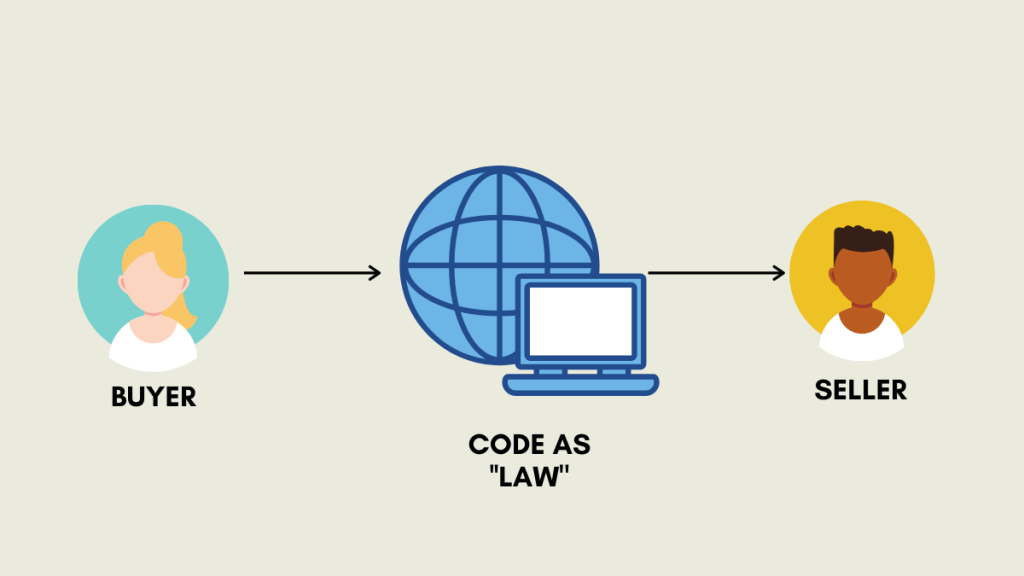
The technological revolution has changed the way we lead our lives, and more importantly, the way any work or business is carried out today. These advancements are not only upending business models in the Banking or Hospitality sector but are also revolutionizing the real estate industry, which historically has been working on the “pen-paper” based model.
Technology in real estate or what is popularly known as PropTech has boomed in the past few years. From managing commercial properties and real estate marketing to providing security protocols for residential assets, it has increased competition, speed, and efficiency across various domains.
But What Exactly is PropTech?
PropTech or Property Technology is the use of IT or information technology in real estate to help companies (including brokers) sell, buy or manage their properties. From using big data to collate and evaluate real estate statistics to providing digital assistance through artificial intelligence, property technologies make real estate transactions easy for all stakeholders.
1. Smart Homes
Smart homes have become a trend in several households. Being able to operate the electric appliances (including digital assistants such as Alexa or Siri), the kitchen, and the security system of one’s property from anywhere in the world has gathered momentum. This is because of the control that the owner feels, becoming less and less dependent on domestic help for petty operations.
2. Virtual Documentation
Anybody with the remotest knowledge about real estate knows about the mounting paperwork and documents that need to be in place for a deal to go through, or an agreement to survive its term. PropTech can make the documentation virtual (following all safety protocols) and handy, so as to be easily accessible whenever required. Besides, it can also make the filing of paperwork digital and easier.
3. Financial Transactions
From rental payments and maintenance costs to duties, financial transactions in real estate involve large amounts. Instead of having to be called by brokers or be regularly bombarded with reminders, PropTech is capable of providing an alternative – automated periodic payments and detailed statements of where your money is going.
PropTech, thus, is swiftly marching towards the idea of a digital real estate market where:
- transactions are smooth,
- resources are utilised adequately,
- efficiency is maximized and
- management of property is economically and personally more viable.
Types of PropTechs to Watch Out for in 2024
Different kinds of property technologies are emerging in the world. And many have already carved a niche for themselves in the real estate world. In order to be efficient in the business, one must ensure they’re acquainted with these technologies and don’t find themselves struggling in their usage. Some types of technology in real estate to watch out for are mentioned below.
Big Data
A buzz term splashed across headlines, “Big Data” refers to the vast amount of information that can be stored, assessed, and analyzed over a long period of time. From hospitality and governance to finance and banking, Big Data technology is permeating every sector, including real estate. It is transforming the real estate world into accuracy, efficiency, ease, and profit. The more data sellers, buyers or brokers have, the more data-driven decisions are made. Big data includes, but is not limited to the following types of data (it gets more specific every day!):
- buying and selling trends in a specific area,
- existence of facilities (hospitals, supermarkets, police station, post office, etcetera) around in the vicinity,
- demographic information (the study of the inhabitant and existing population in an area based on age, race, gender),
- market trends,
- consumer survey results, and more.
This data offers valuable insight into neighbourhood details, pricing, home-value trends, and investment potential in other areas. Moreover, the distributed ledger, Blockchain Technology in real estate, is expected to create a secure infrastructure for:
- real estate payments,
- tenant credit checks and
- smart contracts.
For owners and property managers, big data is about gathering real-time and historical information about all kinds of building systems – electrical, heating, ventilation, air-conditioning, fire/life safety, utilities, telecommunications, and others – and working towards their maintenance. In some cases, big data may alert the property owners and managers to an equipment failure even before it happens, allowing them to repair damages or replace equipment without any threat. This technology in real estate maintains safety and contentment among tenants and owners.
Internet of Things
When we talk about the use of technology in real estate, the Internet of Things or IoT is an essential component. Through IoT, non-technical daily objects like doors, light switches, locks, bulbs, refrigerators, etc are converted to smart appliances. These appliances can be conveniently operated and managed through hand-held devices over the internet.
Apart from offering comfort, this can be an opportunity to study the likes of the tenants and uses of the property equipment. IoT in real estate allows property owners to keep a track of what’s working with the tenants and what’s not, and make the necessary alterations to minimize cost and increase profit.
Since devices are operated and managed over the internet, it enables data collection. By evaluating factors like how many hours of television someone watches or how much the HVAC systems are being used, necessary changes to lifestyle can be made. The major disadvantage, however, of using IoT in real estate is that it can be a huge blow to the privacy of a person if the systems get hacked.
Artificial Intelligence (AI) and Machine Learning
The big data that will be collected by real estate workers will be made more consequential and effective by artificial intelligence and machine learning. It is the use of AI technology in real estate that will enable us to make the data-driven decisions that were previously mentioned, in the following ways:
Digital Assistance
Many consumers, before proceeding with site visits or finalizing deals, need assistance in understanding property related queries. In such cases, AI and digital assistance, in the form of chatbots, comes to the rescue. Using AI or machine learning technology in real estate will therefore clear all doubts that an investor might have.
Accuracy in Studying Trends
Trends and curves in the real estate market today are unable to accommodate the likes of consumers, the neighborhood happenings, consumer surveys, and emotional values. With the help of AI, we can not only accommodate consumer surveys but also neighbourhood crime rates, state tax rates, transport, schools, markets, etc; and hence, there can be a more wholesome prediction of the price trend of an area or vicinity.
AI chatbots
Customer service in the real estate industry is being significantly enhanced through artificial intelligence-powered chatbots. Customer satisfaction and efficiency in the real estate sales process are significantly improved by these chatbots, which offer instant responses to queries and personalized property recommendations. Current chatbots are more responsive and productive, offering virtual customer support, thanks to the introduction of generative artificial intelligence. They’re capable of handling a lot of customer questions, and they’re always there to help, even during busy times or holidays. This technology not only conserves energy and time, but it also permits real estate professionals to tackle more challenging tasks, enhancing the overall client encounter. Furthermore, artificial intelligence-powered chatbots can collect relevant information upfront, guide customers to self-service solutions quickly, and offer personalized experiences based on customer data, creating a more engaging and tailored service. Customer service is more accessible and efficient thanks to this innovation, which provides a more personalized and satisfying experience for buyers and renters.
Blockchain Technology
Storing transactional records or what is also known as ‘blocks’ in databases (chain network) forms the basis of blockchain technology. Real estate, which was historically a “pen and pencil” business, is now reaping the benefits of digital technologies. Just like bitcoins or other cryptocurrencies, real estate assets can now be tokenized and traded very conveniently.
A number of blockchain real estate start-ups have also sprung up since the market trend. This is because blockchain technology in real estate minimizes the risk of the following problems:
- Falsification of documents: digital ownership of a property can be linked to the blockchain using smart, encrypted contracts. Smart-contracts and virtual documents registered with Blockchain technology are encrypted and their authenticity is preserved. Thus, falsification of documents and frauds may be minimized.
- Mediator or middle-men expenditure: in the real estate business, many mediators are present (bankers, notaries, brokers, etc.) to whom you have to make payments to speed up the process. With Blockchain, all documents will be virtual and there may be less interference from any mediators.
The use of technology in real estate, particularly Blockchain, can be explained through the use of “smart contracts.” In traditional methods, there are lawyers who help in drafting contracts. However, by implementing blockchain technology in real estate, the system is pre-programmed to prepare a contract between a seller and buyer. Thereby making transactions easy and convenient!

Customer Management Software (CRMs)
CRMs or Customer Management Softwares can be used to keep track of daily progress in deals, emails, calls, texts, and stages of prospects. This is a technology in real estate that hugely benefits independent property owners looking for tenants, and makes the work of firms easier in maintaining relationships with prospective clients as well as offering follow-up future deals.
Building Information Modelling (BIM)
BIM or Building Information Modelling is a technology used by building owners and property developers to showcase yet-to-be constructed projects to potential buyers or investors. Using this technology in real estate, architects project a three-dimensional structure of the project or home. They enable the buyers to experience and note the physical dimensions of the project, with an insight into the texture and strength of the building. This in turn boosts sales, for it provides a life-like replica of the properties for sale.
Virtual and Augmented Reality
As evidenced by the survival of many companies and students, virtual reality is a new reality. Home Buyers often find traveling to property sites a tad difficult. For them, creating a virtual tour of the property, including a visual guide for operations of certain equipment, has made a win-win situation for agents and buyers.
VR provides a fully immersive experience, allowing users to explore properties virtually and gain a realistic understanding of scale and spatial relationships. Buyers or renters unable to physically visit the properties benefit from this technology because it gives them an extensive understanding of the property’s layout and ambiance.
Augmented reality, on the other hand, overlays digital data onto the real world; as a result, users can see changes to a property, such as furniture arrangements or renovations, with their smartphones. Buyers can see their future home more clearly through this interactive journey, giving the decision-making process heightened intuition and individualization.
Notably, these technologies enhance the property viewing experience by rendering it more accessible, a boon that saves time and curtails travel costs for prospective buyers or renters. By permitting individuals to traverse properties from any global location, virtual reality and augmented reality erase geographical limitations; additionally, they boost effectiveness within the property hunting procedure, thereby fostering a welcoming environment. A trajectory anticipated with certainty indicates that they will undoubtedly assume an increasingly pivotal role in real estate; this bodes well for making property tours both accessible and also far more engaging, efficient, and effective.
Such softwares help buyers personalize or customize the property, to get a real-time idea of the property they want to invest in will look like, whilst saving time and costs on traveling to the property site.
Although investing in virtual and augmented reality can be high, it provides convenience in finding real estate investment opportunities online. Hence, the scope of virtual and augmented reality as technology in real estate is note-worthily growing.
Brokerage and other Mediator Apps
Looking for properties in any area can be a Herculean task for those who have just moved into the area or have no contacts with the real estate world. However, real estate mediator apps make available the list of properties that the user is looking to rent or buy. In fact, AI and big data are also used in such apps to get accustomed to the personal taste of the user and provide appropriate prospects. c3dabc
Sustainable Smart Buildings
Sustainability Smart buildings are the focus of the real estate industry. The emergence of technologies such as energy-efficient appliances, smart lighting, and automated HVAC systems is poised to start a new norm in the construction of smart homes. These new technologies will enable smart homes that are energy efficient and sustainable.
To Summarize
Technology in real estate is picking up with immense gusto. It’s evident in many residential colonies and buildings in metropolitan cities the enhancement of security that technology has brought about. Be it the immediate message, with a picture, that a resident receives every time someone enters their building or door-to-door grocery service from the building markets.
Technology has considerably improved the property prospects that people receive through mobile apps that use Artificial Intelligence and Big Data. Besides, the market trends, neighbourhood details, historical information of the area, reachability of facilities – all extremely vital information that one crosschecks multiple times before buying a property – is curated by technology.
Furthermore, technology in real estate has advanced to the extent that equipment failures can be prevented. Electrical appliances, wiring, geysers, heating or air-conditioning appliances, and even water-pipe connections can all be monitored and proctored by property owners from their very homes. Alerts can be programmed to be sent whenever there’s the slightest chance of equipment failure. All these advantages that technology brings make the real estate market much safer, reliable, and easier to invest in. Even though technology in real estate is flourishing adequately today, some say it’s just the beginning.

![Well, #GrowWithPropacity is here to educate you all about all things Real Estate.
Follow to stay updated in Real Estate!
[Real Estate, Construction, Real Estate Tips, Real Estate Growth, Real Estate Industry, Carpet Area, Super Area, Built Up Area, Home Buying Tips, Home Buyers, Property]](https://propacity.com/blogs/wp-content/plugins/instagram-feed/img/placeholder.png)
Leave a Reply